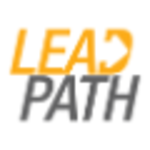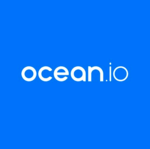Description

ProsperWorks CRM

LeadPath

Ocean.io
Comprehensive Overview: ProsperWorks CRM vs LeadPath vs Ocean.io
ProsperWorks CRM (Now Copper CRM)
a) Primary Functions and Target Markets
Primary Functions: Copper CRM, formerly known as ProsperWorks, is a customer relationship management tool designed primarily for G Suite users. It integrates seamlessly with Gmail and other Google applications, providing the following functionalities:
- Contact and lead management
- Pipeline and task management
- Automation of data entry and workflow processes
- Email tracking and integration with Google Workspace
- Reporting and analytics capabilities
Target Markets: Copper CRM primarily targets small to medium-sized businesses (SMBs) and industries that rely heavily on Google Workspace for their operations. It is particularly popular among tech companies, service-based industries, and startups looking for a CRM that offers ease of integration with familiar Google tools.
b) Market Share and User Base
Copper CRM enjoys a solid market presence, particularly among businesses using Google Workspace. Although exact market share figures may vary, Copper has carved out a niche for itself by targeting digital-first businesses and startups. It is less dominant compared to CRM giants like Salesforce or HubSpot but holds a significant share among Google-based users.
c) Key Differentiating Factors
- Google Workspace Integration: Copper's seamless integration with Google Workspace remains its strongest selling point.
- User-Friendly Interface: It offers a simple and intuitive user interface that appeals to less technical teams.
- Automation Features: Copper automates various backend tasks, making CRM management less labor-intensive.
LeadPath
a) Primary Functions and Target Markets
Primary Functions: LeadPath is designed as a lead management system that primarily focuses on lead capture, lead tracking, and nurturing leads through the sales funnel. Its key features include:
- Customizable lead capture forms
- Lead scoring and tracking
- Conversion analytics
- Integration with existing CRM systems
Target Markets: LeadPath targets businesses of various sizes that require a specialized tool to manage and optimize their lead generation processes. It is beneficial for marketing teams and sales departments looking to improve lead conversion rates.
b) Market Share and User Base
LeadPath is more niche compared to general CRM systems like Copper. It has a focused user base, often adopted by marketing agencies, larger enterprises, and companies with a distinct need for comprehensive lead management solutions. Its market share is smaller relative to more generalized CRM systems, due to its specialized nature.
c) Key Differentiating Factors
- Lead Dedication: Unlike broader CRM systems, LeadPath focuses explicitly on optimizing lead processes, making it highly suitable for organizations with complex lead strategies.
- Integration Capabilities: It can integrate with various other marketing and CRM tools to streamline the overall lead management process.
- Customization: LeadPath offers great flexibility in customizing lead capture and conversion analytics to suit different business needs.
Ocean.io
a) Primary Functions and Target Markets
Primary Functions: Ocean.io provides an AI-driven market intelligence platform that assists in the generation and refinement of B2B contact lists based on real-time data and specific criteria. Key functions include:
- Advanced search and filtering for precise lead targeting
- Data enrichment to improve the quality of contacts
- Account-based marketing tools
- Insightful analytics to inform marketing strategies
Target Markets: Ocean.io is oriented towards businesses engaged in B2B sales and marketing, especially those in need of highly targeted customer outreach activities. It serves SaaS companies, tech firms, and marketing teams looking for data-driven approaches to customer acquisition.
b) Market Share and User Base
Ocean.io's market share is smaller compared to mainstream CRM systems; however, it is considered highly effective in its niche of data-driven B2B contact management. Its user base includes companies focusing on marketing intelligence to support targeted campaigns and account-based marketing efforts.
c) Key Differentiating Factors
- AI-Powered Insights: Offers sophisticated AI-driven tools for optimizing B2B contact lists.
- Data-Enriched Lead Generation: Provides comprehensive data enrichment features that enhance lead quality.
- Focus on Market Intelligence: Unlike traditional CRMs, Ocean.io is more about market intelligence to support B2B growth strategies.
Comparative Summary
- Integration and Ease of Use: Copper CRM stands out for its seamless integration with Google Workspace, making it highly user-friendly for small and medium enterprises.
- Lead Specialization: LeadPath is highly specialized around lead capture and conversion, making it ideal for organizations focused on optimizing their funnel efficiency.
- Data-Driven B2B Growth: Ocean.io provides in-depth market intelligence and enriched data features to help B2B marketers construct targeted campaigns beyond simple CRM functionalities.
Each of these products focuses on varying aspects of CRM and lead management, targeting different markets and offering unique features tailored to distinct business needs.
Contact Info

Year founded :
Not Available
Not Available
Not Available
Not Available
Not Available

Year founded :
2015
+1 312-219-9660
Not Available
United States
http://www.linkedin.com/company/leadpath

Year founded :
2017
+49 730 3951950
Not Available
Denmark
http://www.linkedin.com/company/ocean.io
Feature Similarity Breakdown: ProsperWorks CRM, LeadPath, Ocean.io
To provide a comprehensive feature similarity breakdown for ProsperWorks CRM (now known as Copper), LeadPath, and Ocean.io, here's an overview based on their core functionalities, user interfaces, and unique features:
a) Core Features in Common
-
Contact Management:
- All three platforms provide essential contact management features, allowing users to store and organize information about leads, clients, and partners.
-
Lead Tracking:
- ProsperWorks CRM, LeadPath, and Ocean.io offer lead tracking functionalities, enabling users to monitor and manage potential sales opportunities through various stages of the sales pipeline.
-
Integration Capabilities:
- Each product supports integrations with third-party applications, such as email platforms and marketing tools, to enhance their core CRM functionalities.
-
Data Import/Export:
- Users can import/export data across these platforms to manage information efficiently and ensure data mobility between systems.
b) User Interface Comparisons
-
ProsperWorks CRM (Copper):
- The user interface is noted for its deep integration with Google Workspace, featuring a clean and intuitive design tailored for users familiar with Google’s ecosystem. This seamless integration enhances usability by streamlining workflows.
-
LeadPath:
- LeadsPath typically offers a straightforward and functional interface focused on ease of use for lead generation and prospect management. It's designed to quickly capture and manage leads without extensive customization.
-
Ocean.io:
- Ocean.io's interface is more analytics-driven, providing users with data visualization tools to understand market trends and customer segments better. It emphasizes a tech-driven approach with its AI-powered features for audience identification.
c) Unique Features
-
ProsperWorks CRM (Copper):
- Google Workspace Integration: This platform stands out for its deep and native integration with Google Workspace, making it ideal for teams heavily reliant on Google apps.
- Automation Features: It offers advanced workflow automation tools to help users automate repetitive tasks.
-
LeadPath:
- Lead Capture: Designed specifically for enhancing lead generation, LeadPath provides robust online lead capture capabilities that integrate seamlessly with landing pages and forms.
- Customizable Lead Scoring: It allows users to implement and customize lead scoring to prioritize and qualify leads effectively.
-
Ocean.io:
- AI-Powered Insights: Ocean.io sets itself apart with its AI-driven market segmentation tools. These features analyze vast amounts of data to provide insights on potential markets and optimize targeting strategies.
- Smart Prospecting: It offers unique smart prospecting features that leverage AI to identify new business opportunities more effectively than traditional CRM systems.
In conclusion, while all three platforms share core CRM functionalities, they each cater to different aspects of customer relationship management with their unique interfaces and features sets. Users should evaluate these differences based on their specific business requirements and tech environments.
Features

Not Available

Not Available

Not Available
Best Fit Use Cases: ProsperWorks CRM, LeadPath, Ocean.io
Let's explore the ideal use cases and suitability of ProsperWorks CRM (now known as Copper), LeadPath, and Ocean.io, focusing on their unique features and target markets.
a) ProsperWorks CRM (Copper)
Best Fit Use Cases:
- Businesses Using Google Workspace: ProsperWorks is highly integrated with Google Workspace (formerly G Suite), making it optimal for businesses already embedded in the Google ecosystem. It enhances productivity by seamlessly syncing with Gmail, Google Calendar, and other Google apps.
- Small to Medium-Sized Enterprises (SMEs): Its user-friendly interface and simplicity make it suitable for SMEs that need a straightforward CRM solution without the complexity of more extensive systems.
- Project-Based Companies: Especially those with sales-oriented projects, as it provides robust opportunity and project management features.
Industries:
- Technology startups
- Professional services
- Creative agencies
b) LeadPath
Best Fit Use Cases:
- Lead Management Focus: LeadPath is tailored for businesses prioritizing lead capture and conversion. It's ideal for organizations seeking to streamline their lead generation processes.
- Companies with Multiple Lead Sources: It excels in environments where businesses need to manage leads from various online and offline channels, providing a centralized system to handle, qualify, and distribute leads.
Industries:
- Real estate
- Financial services
- Marketing agencies
c) Ocean.io
Best Fit Use Cases:
- B2B Companies: Ocean.io is best suited for B2B companies needing intelligent data to enhance their sales and marketing strategies. It helps identify high-potential leads based on firmographic and technographic insights.
- Strategically Targeting Niche Markets: It enables businesses to use advanced targeting capabilities to focus on niche markets or segments that might be difficult to identify using traditional CRM data.
Industries:
- SaaS businesses
- Manufacturing
- Enterprise-level sales organizations
d) Catering to Different Industry Verticals or Company Sizes
-
ProsperWorks CRM (Copper): Appeals widely to companies of small to medium sizes across sectors that are heavily reliant on Google's ecosystem. Its affordable pricing and straightforward deployment are attractive to startups and SMEs needing essential CRM functionalities without excessive expenditure.
-
LeadPath: Positioned more towards medium-sized companies or larger enterprises that have intricate lead management needs and handle a high volume of leads from diverse sources. Fits sectors where lead tracking and conversion are critical.
-
Ocean.io: Often considered by larger and more data-driven companies, especially those in the B2B arena. Industries that rely on data analytics and precision targeting to optimize their sales efforts will find it particularly advantageous. The scalability and sophistication of its insights mean it's well-suited for companies looking to expand their market penetration intelligently.
By understanding these distinctions, businesses can align their specific needs with the capabilities of each platform, ensuring optimal integration and utilization across various organizational contexts.
Pricing

Pricing Not Available

Pricing Not Available

Pricing Not Available
Metrics History
Metrics History
Comparing teamSize across companies
Conclusion & Final Verdict: ProsperWorks CRM vs LeadPath vs Ocean.io
To offer a well-rounded conclusion and final verdict on ProsperWorks CRM (Copper), LeadPath, and Ocean.io, we need to evaluate factors such as overall value, pros and cons, and specific recommendations for different user needs.
Conclusion and Verdict
a) Overall Value
Copper (formerly ProsperWorks CRM): Copper is generally considered a strong value for small- to medium-sized businesses, especially those heavily integrated into the Google ecosystem. It offers seamless integration with Google Workspace, making it intuitive for teams already accustomed to Google's interface.
LeadPath: LeadPath is more focused on lead capture and management, making it valuable for organizations that need a streamlined way to handle incoming leads. It might lack some of the comprehensive features of a full-fledged CRM like Copper but excels in lead generation.
Ocean.io: Ocean.io is highly specialized for companies looking for advanced data capabilities and lead scoring. It shines in AI-led data enrichment and targeting. It may have a steeper learning curve and higher cost but offers significant benefits in precise audience targeting.
Best Overall Value: For most small to mid-sized businesses seeking a balanced CRM solution with excellent integration capabilities, Copper offers the best overall value due to its versatility, ease of use, and seamless integration with other tools.
b) Pros and Cons
Copper (ProsperWorks CRM):
- Pros: Excellent integration with Google Workspace; user-friendly interface; solid reporting features; good customer support; scalable for growing businesses.
- Cons: May not have as many advanced features as some specialized CRMs; primarily suited to Google's ecosystem, which might not work for businesses using other tools.
LeadPath:
- Pros: Strong lead capture and management features; user-friendly for teams new to CRM software; often more affordable; focus on simplicity.
- Cons: Limited CRM capabilities beyond lead management; may lack advanced features larger enterprises require.
Ocean.io:
- Pros: High-quality lead scoring and data enrichment; excellent for targeted marketing; powerful AI-driven insights; useful for companies with a strong data focus.
- Cons: Higher learning curve; potentially higher costs; less general CRM functionality compared to broader tools like Copper.
c) Recommendations
-
Users already in the Google Workspace ecosystem: Copper is an excellent choice due to its seamless integration and user-friendly interface for teams already utilizing Google tools extensively.
-
Companies prioritizing lead management: LeadPath is suitable for businesses that need a tool focused primarily on capturing and managing leads without the added complexity of a more comprehensive CRM system.
-
Organizations requiring advanced data capabilities: Ocean.io is recommended for businesses or sales teams that rely heavily on precise targeting and data-driven decision-making. It’s particularly suited for companies looking to enhance their marketing strategies with data enrichment.
Ultimately, the choice between these three products will depend on the specific needs and existing technological infrastructure of the organization. Businesses should carefully evaluate their CRM needs, pay attention to integration requirements, and consider budget constraints before making a decision.